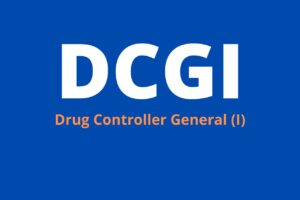Last Updated on September 3, 2023 by The Health Master
Online sale of Drugs
In a recent development, the Delhi High Court issued a directive to both the Central Government and the city administration to take immediate measures against individuals and entities involved in the unauthorized online sale of drugs.
The court’s action aims to curtail the proliferation of online sale of drugs without proper licensing.
After reviewing the matter of the online sale of drugs, a bench headed by Chief Justice Satish Chandra Sharma and Justice Sanjeev Narula reached this significant decision.
Six Weeks to Take Action
The bench, presided over by Chief Justice Satish Chandra Sharma and Justice Sanjeev Narula, has granted a period of six weeks to the Central Government to enact appropriate measures to address the issue of “illegal” online sale of drugs.
During this time frame, the Central Government is expected to provide the court with a comprehensive stance on the matter and the actions taken.
Pending these deliberations, the court has directed both the Central Government and the State Government to take immediate action against violators who are engaging in the online sale of drugs without the necessary licenses.
This interim directive stems from an order issued on December 12, 2018.
Consultations and Further Hearing
The bench has scheduled further proceedings for November 16 to deliberate on the ongoing consultations regarding a draft notification related to the online sale of drugs.
The Centre’s counsel informed the court that discussions are still in progress regarding this crucial aspect of regulating drug sales through online platforms.
Legal Battles Surrounding Online sale of Drugs
Several petitions have been presented before the court, each calling for a ban on the “illegal” online sale of drugs.
The petitions also challenge the proposed amendments to the Drugs and Cosmetics Rules, which were published by the Ministry of Health and Family Welfare.
Notable petitioners include the South Chemists and Distributors Association, represented by advocate Amit Gupta, and Zaheer Ahmed, represented by advocate Nakul Mohta.
These petitioners have voiced concerns over the lack of proper regulations and the potential health hazards posed by the uncontrolled online sale of drugs.
Argument Against Licensing Requirements online sale of drugs
Certain e-pharmacies had previously contested the need for a license to engage in the online sale of drugs.
They drew a parallel to food delivery apps like Swiggy, arguing that just as Swiggy doesn’t require restaurant licenses to deliver food, they too shouldn’t need drug licenses to deliver medications purchased online.
This argument emerged during the hearing of a petition seeking contempt action against e-pharmacies for disregarding the high court’s order against the online sale of drugs.
Health Risks and Regulatory Void
The petitioner body has underscored the potential dangers of the unregulated online sale of drugs.
It has warned that such a practice could contribute to a “drug epidemic,” drug abuse, and the misuse of habit-forming and addictive drugs.
The petitioner also emphasizes that the absence of a strong mechanism to regulate the sale of drugs online poses a serious threat to public health as well as to people’s rights to a safe and healthy life, which are guaranteed by Article 21 of the Constitution.
Regulatory Vacuum
The petitioner’s arguments emphasize the lack of proper regulation and licensing for online pharmacies.
This regulatory void opens the door for the sale of substandard and potentially dangerous drugs, leading to serious health implications for patients.
The Ministry of Health and Family Welfare, the Central Drugs Standard Control Organisation (CDSCO), and an expert committee appointed by the drug consultative committee have all reportedly concluded that the online sale of drugs violates the provisions outlined in the Drugs and Cosmetics Act of 1940 and other related laws.
Disclaimer: This article contains information derived from the source mentioned below. Our team utilized an AI language model to rewrite and present the news or article in a unique format.
Bulk Drug Park set to boost Domestic Production: Gujarat
Major Seizure of Counterfeit: Fake Drug Syndicate Busted
India allocates Rs. 5,000 Crore to foster R&D in Pharma Sector
New technologies are changing the face of the Cosmetics Industry
Major cracks down on Pharma MSMEs for gross GMP violations
Pharma Industry Gears Up for Revised Schedule M: Gujarat
Drug recall: Glenmark recalls this High BP drug due to quality reasons
Trademark Protection of medicine branding upheld by Delhi High Court
NABL certification for Laboratories: Let’s understand
Revolutionary Device: New Technology for Diabetes Detection and Management












